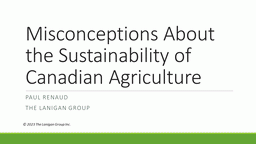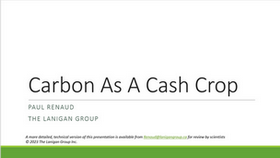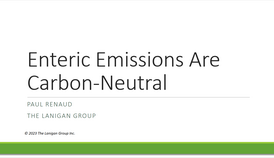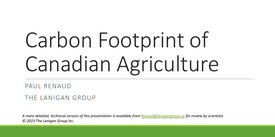The Lanigan Group

A Fact-based Analysis of the Sustainability of Canadian Agriculture
After discovering two farms that were already operating on a climate neutral basis, we decided to explore the sustainability of Canadian agriculture via a 4-part, fact-driven analysis. Click on the headings below to see an overview of each report, or on the images to download the full report.
- Misconceptions About the Sustainability of Canadian Agriculture addresses false assumptions and misconceptions about Canadian agriculture's role in global warming due to lack of attention to on-farm sequestration by policymakers.
Everyone is focused on reducing farm emissions, while few are considering existing sequestration services that are already occuring on farms.
- Carbon as a Cash Crop addresses why Canada's current narrative for agricultural climate action isn't working and why carbon credits are ineffective as a basis for incentivizing agricultural climate action.
It proposes a more effective alternative based on the concept of incentives for excess sequestration services.
An incentive system could easily be funded on a revenue-neutral basis via the proceeds from the current carbon tax.
- Enteric Emissions are Climate Neutral presents a detailed analysis of enteric emissions in Canadian dairy.
Our analysis proves that enteric emissions in Canada are non-additive to global warming and occur in a biogenic carbon cycle that sequesters more carbon than is emitted.
In other words, diary cows are proven to be part of biogenic carbon capture and sequestration cycle that sequesters approximately 10 Tonne of CO2 per dairy cow per year.
- Carbon Footprint of Canadian Agriculture presents a comprehensive estimate of the net carbon footprint for Canadian agriculture that is otherwise unavailable from official sources.
It documents that Canadian agriculture is already sustainable because it is already generating over $3 B in unpaid, excess sequestration services.
It also shows that Ontario's agriculture sector, the province with the most farms in Canada is already operating on a better than net-zero basis.
It also presents the case studies that triggered this 4-part series.
Please feel free to contact us to discuss any of the above, or potentially related research into other agricultural sectors.



